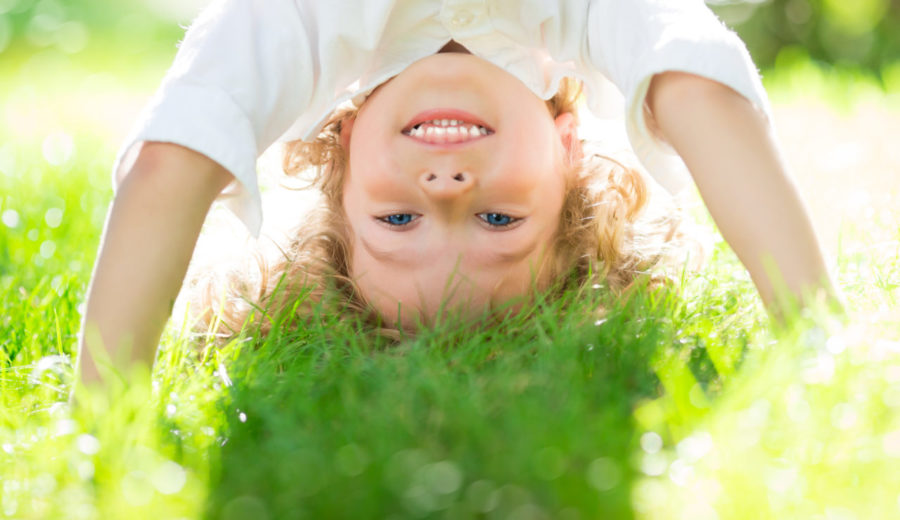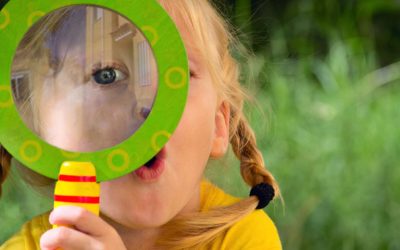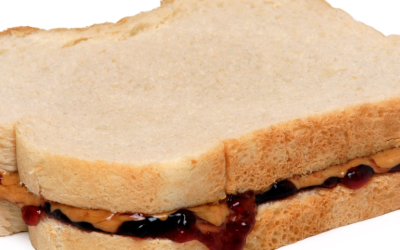Every year as summer draws near, millions of families are faced with making a decision about how their children will spend their time off. While some people feel that careless and unstructured free play is what summer is all about, in today’s day and age more and more parents are deciding that their children may fare better with something that’s both structured and fun.
For many parents, that’s often the point when they begin looking at summer day camps for their toddler, preschooler or grade-school children.
Unlike sleepaway camps for older children, summer camps for preschoolers and toddlers tend to be day camps which provide a variety of fun activities to keep children engaged during the day while their parents work. Though not the only way to beat summer boredom for your kids, summer programs for young children can provide unique benefits not found elsewhere.
That being said, it is not often clear exactly how a good summer day camp or program can provide a well-rounded developmental boost to toddlers and preschoolers. While it is fairly well-known that summer camp activities can improve a child’s physical health by promoting exercise, it is not as widely understood how a good program can also facilitate social and psychological development during a key time in a young child’s life.
With many years experience running a summer day camp for toddlers, preschoolers and grade school age children, we wanted to share some of the intellectual, physical and emotional advantages your child can likely experience from a high quality summer day camp program that will serve them well for years to come.
Avoiding brain drain
Birth to age three is the most rapid growth rate in brain development in the entirety of the human lifespan. This short developmental window is crucial for helping children develop socially, intellectually and physically.
A good preschool program aims to pinpoint all three of these developmental facets. In a review of three separate studies, 80% of children who participated in preschool programs outperformed their peers who did not participate in high-quality early care and education programs.
That being said, during the summer it’s important that your child’s learning and growth do not also take a summer break! Having the summer off can lead to a learning slump that makes it more difficult to catch up once school’s back in session.
By participating in summer camp activities and even summer courses, your child’s brain will stay active throughout this season. This will allow them to keep learning and return to school ready to go, rather than feeling like they’ll need to re-learn everything they knew before.
Physical health
It doesn’t take a developmental psychologist to tell you that young children have a seemingly inexhaustible well of energy. The sun is up early and out longer, the weather is warm, and there are tons of adventures to be had.
In a time when many kids are perfectly content to spend hours looking at a screen, camps and outdoor summer programs are more valuable than ever. Even programs that are more academic or artistic in nature will often still encompass physical elements like preschool swim lessons, outdoor excursions, or lunchtime and playtime outside.
Physical activity is a major reason to attend summer camp for toddlers and preschoolers. According to the CDC, only one in three children is physically active on a daily basis, with children spending an average of seven and a half hours a day sitting in front of a screen. But the American Camp Association reports that approximately 70% of summer camps focus on physical activity in their philosophies and programming.
From swimming lessons to soccer to playground games and even freeze tag, a good summer camp for kids will have no shortage of exercise. Whether or not sports participation is the highlight of these summer camp activities, playing games and even getting around the facility will require physical activity.
Not only will all this activity allow your children to be more active, but it also has many positive side effects. Regular physical activity in young children has been shown to help ease anxiety, temper tantrums, and outbursts in your children and can even regulate their sleep schedule. (We know you like that one).
Bottom line, physical activity is an important part of young children expending the boundless energy they build up. A summer day camp provides the perfect, healthy place for them to burn that energy while you’re at work – leaving them happy and exhausted at the end of the day.
Social development and self-esteem
During the school year, your child will undoubtedly come into contact with all kinds of children and learn how to share, cooperate, and get along in a classroom setting. But summer camp for toddlers presents young children with real life situations and countless opportunities to learn from their peers and get involved socially. School can be a fantastic social opportunity, of course, but there’s nothing quite like camp or a summer course to encourage those valuable bonds and social experiences.
Your child can reap countless emotional benefits from participating in camps, courses, and other summertime activities. At summer camp, children learn to shift their focus from themselves to their team. Through teamwork, small children learn to make new friends and discover that they’re much stronger together.
For example, preschool children who partake in these activities will gain confidence to make new friends, master new skills, and become more independent. Because they’ll accomplish so much, they’ll also probably gain a positive attitude about their experiences and bring that glow into everything they do going forward.
Plus, it takes them out of the comfortable microcosm of the classroom. There are new people to meet, new social engagements to be a part of, and new things to learn. Introductions are strange at first, but they get comfortable with each new handshake and high five.
Hundreds of kids in the same age group enjoy weeks on end of summer day camp. It becomes a community that grows more tightly knit as the summer goes on, often leading into friendships that continue into the school year.
Whether they’re working together to win a team challenge or are simply helping each other master a new athletic skill or in the arts and crafts room, they’ll come to understand that their shared success is far better than that of the individual. They’ll also learn tolerance and cooperation as they learn more about children from different backgrounds, understanding that harmony and friendship is something everyone can share.
Exploring new interests
A quality preschool program recognizes that not all types of learning happen in the academic classroom. In fact, summer camp provides the atmosphere for young children to learn things that they might never learn in a class during the school year.
In a classroom setting, your child may have already shown an affinity for reading, art, or performing. But at camp or summer program, young participants can really delve into these interests and express themselves creatively.
Whether it’s music, science and nature, dancing, arts and crafts, or sports, your child will get a chance to really let their personality and unique set of likes shine through. And with the encouragement they’ll receive at their summer camp for toddlers or in other programs, they’ll feel inspired to keep their passions going.
Hands-on physical activities combined with intellectual and creative challenges keep young minds and bodies both entertained and active. Plus, the best summer programs are designed by top-notch, trusted child care professionals who happen to be subject matter experts, educators, and fun-loving adults.
Nutrition
When children are left to their own devices during summertime, they tend to gravitate to the junk food and end up consuming unhealthy amounts of sugar, salt and fat. While some summer day camps will offer the occasional pizza party, most modern ones will try to encourage healthy habits and promote a nutritious diet.
Fruit, vegetables, grains, and dairy are often plentiful, while candy and other unhealthy snacks are scarce. Many experts also believe that because a summer day camp is a new setting for many small children, they become more inclined to try new foods and embrace healthy additions to their diets than they might be at home.
Emotional Development
A recent study showed that approximately 87% of five-year-olds were enrolled in pre-primary programs. Not only do these programs help children grow in terms of brain development, but they also allow students to develop their social and emotional skill sets.
In the same way, summer camp for toddlers can allow children to spend time with their peers to make new friends, pursue their passions, and express their emotions.
Spending time in nature has been found to improve moods among people of all ages, so being able to connect with the outdoors early on in life will provide countless benefits there, too. They’ll increase their melatonin and serotonin levels while getting a healthy dose of vitamin D.
Confidence
Trying — and mastering — new things gives young children a sense of real accomplishment and confidence that may not always come naturally in their home environment.
A good summer day camp program forces children to get out of a familiar environment, and therefore, their comfort zone. For many kids, this will be the first time trying certain activities. They’ll need to adjust to a new routine, make new friends, and interact with new adults. They’ll also get a chance to be challenged, overcome obstacles, and become a bit more independent. By becoming more comfortable with new life additions, they’ll learn to be more flexible, courageous and confident.
Whether or not a child is the best at a certain activity, simply trying something new and accomplishing a goal can build their self-esteem and allow them to find things they’re passionate about. These feelings of confidence can easily transition into life at home and at school, both throughout childhood and into adulthood.
Resiliency
After you’ve finished finding the right summer camp for your preschooler and it’s time for your child to attend, they’ll soon discover that they won’t do everything perfectly on their first try. They might have to try a task — whether it be a creative challenge, a physical activity, or a social game — over and over before they finally accomplish their goals.
While they might feel frustrated at first, they’ll learn that the “if at first you don’t succeed” adage is a wonderful approach to all things in life. When they’re finally successful, they’ll feel great; not only did they accomplish their goal, but they also failed to give up. That resilience will keep them going when times get tough and will encourage them to look back on everything they’ve achieved to motivate them in the future.
Summary
It’s important for young minds and bodies to continue developing during the otherwise lazy days of summer. By enrolling your toddler or preschooler in a summer day camp, you can ensure your child’s intellectual and physical growth remains active during the most critical developmental years of their lives. And though finding a highly regarded and well-rounded summer camp isn’t always a cinch, the benefits your child stands to gain will make it well worth the effort.
Interested in reaping the benefits of a well-rounded summer day camp for your toddler or preschooler? Please take a look at the Lily Pond Summer Day Camp in beautiful Bergen County, NJ.





